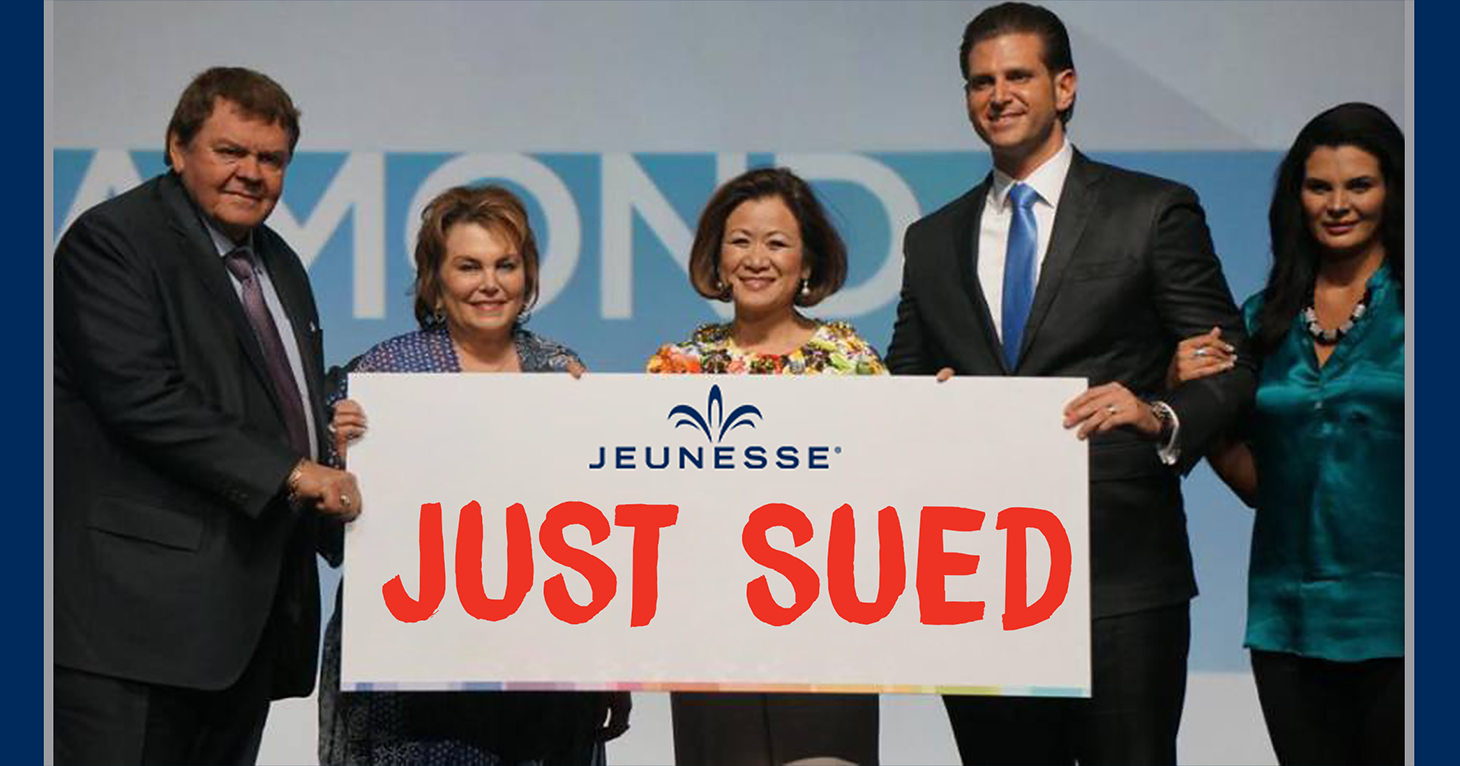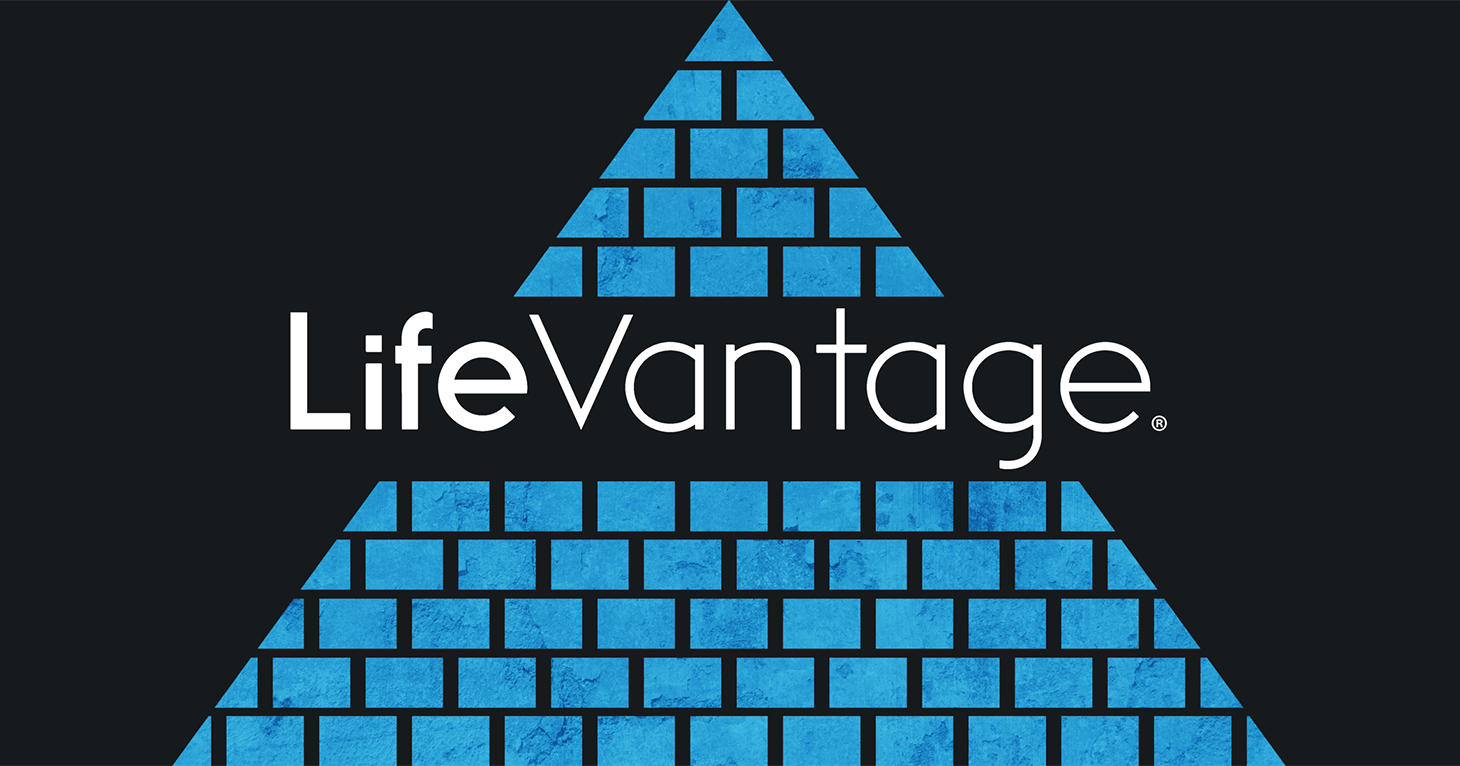
Fourth Jeunesse Pyramid Scheme Lawsuit Filed
New lawsuit calls Jeunesse a pyramid scheme while taking aim at product line.
Company agrees to a ban on pyramid scheme practices to settle charges.
|

Vemma Nutrition Company, an Arizona-based dietary supplement Multilevel Marketing – a way of distributing products or services in which the distributors earn income from their own retail sales and from retail sales made by their direct and indirect recruits. that came barreling across college campuses recruiting students into what the FTC labeled a pyramid scheme, has reached a $238 million judgment with the agency that bans recruitment-focused business practices. The amount that Vemma will actually pay and what the FTC will be able to obtain for victims, however, will be a fraction of the judgment.
The company’s decade-long run that peaked in 2013 with a purported 30,000 members joining a month, sales of more than $200 million and expansion overseas, was thwarted in 2015 when the FTC filed a lawsuit against Vemma, its CEO Benson K. Boreyko and top distributors Tom and Bethany Alkazin. Early in its court battle, the FTC successfully obtained a preliminary injunction and a court order requiring that the company radically change its compensation structure to reward sales to end users as opposed to recruitment of new distributors.
Settlement details
TINA.org first warned consumers about Vemma in 2013 and the company was the focus of a special investigation and two letters to the FTC regarding its business structure and unsubstantiated health claims.
Under the federal court orders, Vemma, Boreyko, and Tom Alkazin are banned from promoting any business ventures that:
The court orders also bar them from making deceptive income claims and unsubstantiated health claims and requires the company to provide compliance reports by an independent auditor for the next 20 years.
How much of the $238 million judgment will be available for consumer redress is uncertain as Vemma’s revenues dropped significantly. Under the agreement, the $238 million judgment will be partially suspended upon payment of $470,136 and the surrender of certain real estate and business assets. The order requires that Boreyko turn over assets including a residence in Arizona, vacant land, and a golf cart. Vemma has to turn over two motorcycles, a massage chair, and its art collection. The Alkazins are ordered to pay about $6.8 million, which will be partially suspended upon payment of $1.2 million and the surrender of certain assets.
During Vemma’s heyday, Boreyko and distributors such as Tom Alkazin were promising earnings for recruits amounting to $50,000-$80,000 a month and said that the only thing that limited their income potential was their own efforts. In actuality, 94 percent of affiliates received less than $500 per year between 2013-2015. While the company was targeting students to join its “Young People Revolution” as an alternative to traditional jobs and college debt, in fact, the vast majority of participants lost money. Boreyko, however, made bank, with Vemma paying him more than $19 million from 2010-2015. He is currently fighting an IRS audit that found he vastly underreported his earnings from Vemma and actually owes more than $5 million in taxes and penalties for 2012 and 2013. The Alkazins, who were Vemma’s top earning distributors, raked in well over $17 million during their tenure with the company. Under the judgment they are banned from asserting the misrepresentation that participants who do not earn significant income fail to devote substantial or sufficient effort to the venture.
Spin
The Vemma settlement comes less than six months after Herbalife, a publicly-traded California nutrition and weight loss supplement company, reached a $200 million settlement with the agency that also requires a substantial change in its recruitment-focused business structure. While Herbalife spun the settlement as acknowledgement that its “business model is sound” and key investor Carl Icahn said the settlement concluded that “Herbalife is not a pyramid scheme,” FTC Chairwoman Edith Ramirez said it would be inaccurate to say the company was not determined to be a pyramid scheme. Similarly, Boreyko in a statement noting that Vemma denies any wrongdoing, tried to spin the judgment as a win, inexplicably stating that Vemma doesn’t have to pay any money to the FTC when it does have to turn over liquidated assets and Boreyko himself has to pay close to $500,000. Said Ramirez in a tweet about the Vemma judgment:
.@FTC action highlights that MLMs must ensure their earnings claims aren’t misleading & their compensation focuses on sales 2 real customers
— Edith Ramirez (@EdithRamirezFTC) December 15, 2016
Company struggled to make retail sales
 Early in the court battle, Boreyko peddled a compensation plan that the FTC deemed even “worse” than the old pyramid scheme plan — distributors could only earn commissions if the majority of their sales were to actual retail customers outside the Vemma distribution network. That court-endorsed plan effectively ended the recruitment frenzy and inventory loading by distributors who had to purchase costly affiliate packs and mangosteen and mineral supplements each month to fully qualify for bonuses and commissions.
Early in the court battle, Boreyko peddled a compensation plan that the FTC deemed even “worse” than the old pyramid scheme plan — distributors could only earn commissions if the majority of their sales were to actual retail customers outside the Vemma distribution network. That court-endorsed plan effectively ended the recruitment frenzy and inventory loading by distributors who had to purchase costly affiliate packs and mangosteen and mineral supplements each month to fully qualify for bonuses and commissions.
But the company’s ability to stay profitable as a legitimate MLM was questioned by the court early in the case. Judge John J. Tuchi said in a September 2015 ruling:
Going forward, the injunction’s prohibition against incentives for recruiting over product sales and misleading promotional statements may result in a critical decrease in persons interested in the business opportunity without its pyramidal aspects. This of course would present some proof of the FTC’s allegations that persons participated in the Affiliate venture only to obtain bonuses tied primarily to recruitment.
And indeed the company’s finances struggled under the new plan. Vemma contended that the losses, which amounted to millions, were brought on by the court action, which included the appointment of a temporary receiver who had broad authority to control all aspects of the Vemma business and its assets. In court papers, Vemma said the losses were “solely a result of extraordinary expenses that arose from the Temporary Receiver’s worldwide shutdown of the business” and other costs related to the FTC’s actions.
But in video blogs this summer, Boreyko admitted that the company was struggling to make sales and that he was thankful to members of the MLM industry who had been helping out by purchasing products.
Facing a rapid decline in recruits and rising legal costs, the company canceled product lines, shuttered operations overseas, terminated its lease on its Tempe headquarters and sold off its furniture, fixtures and equipment. Many top distributors left for other ventures.
Court documents, however, revealed that even before the FTC stepped in, the company’s revenues were declining as complaints from parents and students about its recruitment-focused business practices mounted and it faced the glare of increasing scrutiny from national media. Between 2013-2015, Vemma lost more than $3 million.
FTC’s second go at Boreyko
 This settlement is not Boreyko’s first run-in with the FTC, which cited him and his previous dietary supplement company, New Vision International, for inappropriate health claims tied to a product billed as a cure for ADHD. Under the agency’s 1999 consent order in effect until 2019, Boreyko was banned “directly or through any corporation, partnership, subsidiary, division or other device” from making any claims about the safety or efficacy of supplements without reliable scientific evidence to back them up.
This settlement is not Boreyko’s first run-in with the FTC, which cited him and his previous dietary supplement company, New Vision International, for inappropriate health claims tied to a product billed as a cure for ADHD. Under the agency’s 1999 consent order in effect until 2019, Boreyko was banned “directly or through any corporation, partnership, subsidiary, division or other device” from making any claims about the safety or efficacy of supplements without reliable scientific evidence to back them up.
Boreyko later folded New Vision into his new venture, Vemma, a liquid mangosteen-based line of supplements which launched in 2004. TINA.org in its investigation found that Boreyko and many key distributors claimed Vemma was a treatment or cure for a variety of diseases and disorders in clear violation of the FTC 1999 consent order.
In addition to making health claims, the company and top distributors also heavily marketed Vemma as an opportunity to earn riches, promising students that they could drive fancy cars and live lavish lifestyles by building teams of fellow recruits as part of a “Young People Revolution.” Parents complained that Vemma was brainwashing their children into dropping out of college.
But the only ones that really earned money were Boreyko and a few top distributors. Worse, Vemma buried these facts in income disclosure statements that falsely defined failed affiliates as customers, court documents revealed.
“Unfortunately, extravagant income claims and compensation plans that reward recruiting over sales continue to plague the MLM industry,” said Jessica Rich, the FTC’s director of its Bureau of Consumer Protection in a press release. “MLM companies must ensure that their promotional materials aren’t misleading, and that their compensation programs focus on selling goods or services to customers who really want them, not on recruiting more distributors.”
In issuing the preliminary injunction last year, Judge Tuchi made it clear to the company that it was very unlikely to disprove the FTC’s pyramid scheme charges stating:
The evidence before the court leaves little doubt that the FTC will ultimately succeed on the merits in demonstrating that Vemma is operating a pyramid scheme.
The FTC’s settlement with Vemma marks the 26th pyramid scheme case filed by the agency in the last 40 years.
For more information on TINA.org’s special investigation of Vemma, click here.
This post was updated on 12/16/16.
New lawsuit calls Jeunesse a pyramid scheme while taking aim at product line.
“False dreams of wealth” are touted in an attempt to make up for products that are “snake oil,” complaint alleges.
TINA.org participates in its first Reddit AMA.


